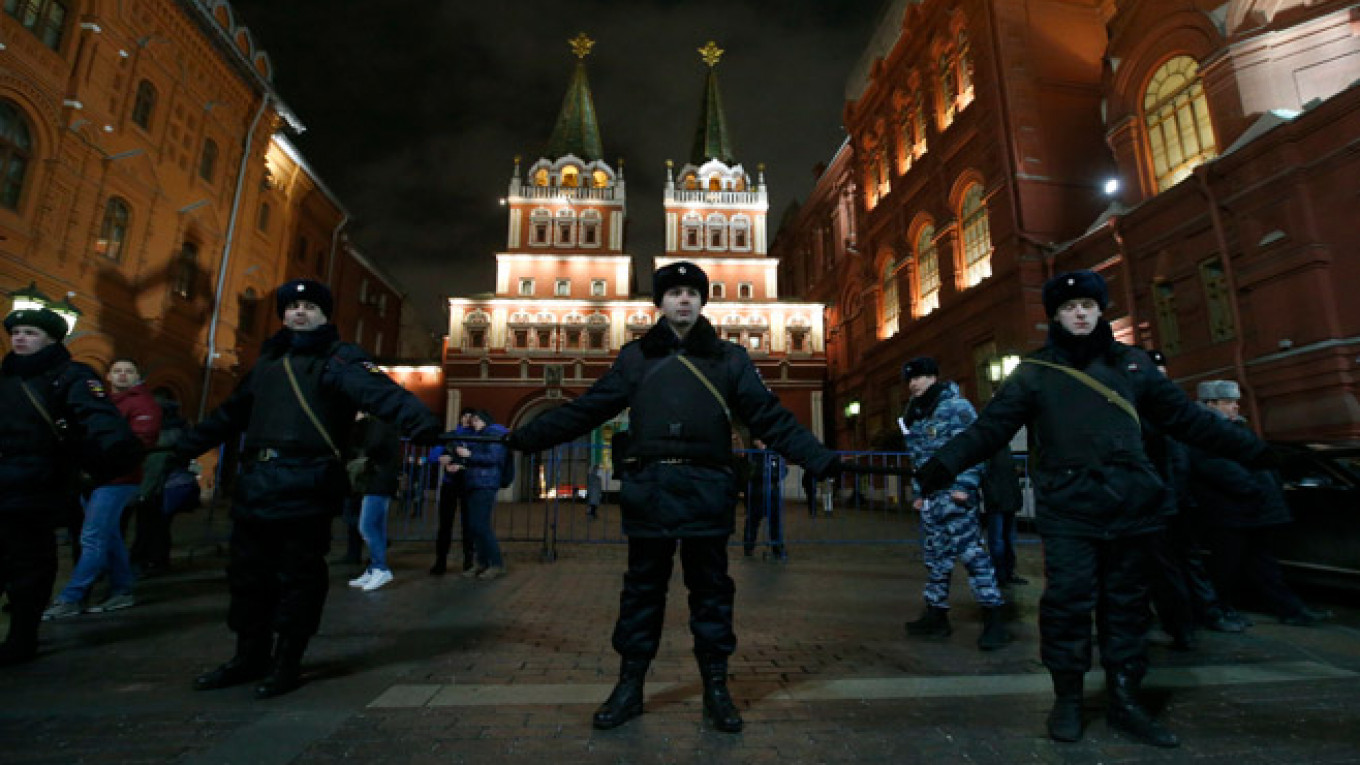The political regime in Russia is a true work of art, but one that only looks good from a single vantage point — that of its creator. From every other angle and for every other viewer, both in Russia and the rest of the world, the image cast by that regime raises a number of troubling questions.
Why would any government create conditions that make existence impossible for businesspeople, scientists, artists and everyone else in whom the country would ordinarily take pride? And why at the same time create conditions that enable scoundrels and crooks to prosper?
Why punish the best members of society and encourage the worst? Why start a war with a "brotherly people"? Why deliberately show disdain for Russia's partner states? Why create new international unions with one hand and then destroy them with the other?
Of course, all of these questions come from outsiders because only outsiders would ask them. In Russia, just about everyone is an outsider, with the exception of the small handful of people who are privy to what is happening in the president's office. It is difficult to even guess at what is holding this whole thing together.
In fact, the "glue" holding Russia's political system together consists of the powerful human instincts of fear and the desire for status and wealth. Of course, societies in many other countries also rely on those baser motivations, but only a few manage to create institutions capable of extracting from them something of benefit to the public.
Unfortunately, the Russian system is not one of them. Some countries use a policy that appeals to officials' sense of vanity in order to build good roads or a first-rate university. That same approach in Russia only prompts the political elite to build personal palaces and to line their pockets with ever greater sums from government coffers.
The desire to retain power not only permits, but requires, that privilege and property become concentrated among as few "winners" as possible. According to U.S. political scientist Bruce Bueno de Mesquita, author of the books "The Logic of Political Survival" and "The Dictator's Handbook," masters of political survival — from former Soviet leader Josef Stalin to Syrian President Bashar Assad — can remain in power for many years by relying on a manageable number of chosen associates and controlling the country's resources.
If a ruler suddenly shows generosity to the population at the expense of his closest supporters, the latter will turn against him. He needs to keep those close associates well fed, but never allow them to relax. The members of his inner circle must keep in mind that the competition for their coveted positions is enormous, and that to retain their advantages, they must demonstrate unflinching loyalty to their host. This has the effect of encouraging the worst in human nature and society and punishing the best.
Russian society has been transformed into an audience for the national leader. The Kremlin uses state-controlled television channels and other media not to campaign and organize, but rather to carry out "anti-campaigns" and to disorganize listeners. The press is no longer an instrument for collective campaigning and propaganda, but a collective disorganizer.
Leaders deluge their audience with the greatest possible number of conspiracy theories, lies, horror stories and absurdities. The ruling regime works directly with people's minds, enabling it to maintain control over the population with minimal use of force — a positive side-effect of an otherwise alarming policy.
As a consequence, it eliminates the very possibility of taking independent action or publicly taking a position based on principle. All ideas and beliefs must not derive from higher values, but serve as instruments of government control.
The ability to manipulate the worst aspects of human nature produces excellent, albeit temporary, results for rulers bent on political survival. There is a certain advantage in the fact that nobody knows when his rule will end, but the problem is that the dictator also has no clue. The safest way for a dictator to exit the scene is to willingly lose re-election or to voluntarily step down.
Another limitation is the negative consequence of the government's tight control over incomes. To maintain control over the ownership of property, the ruler must have a weak and easily manipulated legal system. But because that system is kept weak, the members of the ruler's inner circle, along with the entire business community, place their considerable assets under the protection of the legal and judicial systems of other more developed countries.
That duality — a result of so-called "legal flight" and the desire for political survival — now poses a threat to the regime because the foreign assets of President Vladimir Putin's close associates are vulnerable to sanctions. An offer for amnesty if those assets are returned to Russia will not help because the ruler needs to maintain a weak, easily controlled legal system, one that, by definition, is incapable of protecting those assets at home.
Another limitation resulting from tight control is the unquenchable greed of the ruler's close associates and the ruler's inability to gauge the exact extent of their wealth. The ruler needs a non-transparent system so that he can cunningly distribute the wealth within his inner circle. And it is even better when each does not know how much the other has received. The problem with that approach is that these individuals manipulate that secrecy to their own advantage by hiding their profits so as to win even more of the taxpayers' money.
There are also limits imposed by the more independent members of society. Creative people and activists who act on their own initiative have the potential to bring the whole system to a standstill. Those who can earn a living by their own efforts — writers, computer programmers, artists and representatives of other independent professions — are relatively free.
There are other limitations as well. The desire to retain control compels such a leader to concoct a strange blend of nationalism and religion, subjugating all values and ideology to the higher purpose of ensuring his political survival.
The Kremlin has even found a way to use the Soviet victory in World War II to this end. Of course, by unleashing a war in Ukraine, the Russian leadership has forfeited its status as the moral inheritor of the victors over Nazism, but Kremlin spin doctors have managed to misrepresent the past and present so thoroughly as to convince most Russians that this regime is still battling the Nazi threat.
This system considers ideas in any form — unless they serve the needs of the regime — as mortal enemies. This even includes nationalism and fundamentalism. Leaders know that if any idea were to "break free" from its Kremlin handlers and unite the masses under its banner, it could completely obliterate the political system as it now exists.
Apparently, 80 percent of the Russian people support this system because they are willing to pretend that they are looking at it through the Kremlin's point of view, and therefore appreciate its beauty.
However, even a cursory "view from the street" shatters that illusion. The main limitation to this system is that now it is only capable of spurring ever greater negative consequences and hastening its own demise.
Maxim Trudolyubov is an editor at Vedomosti. This comment originally appeared in Vedomosti.
A Message from The Moscow Times:
Dear readers,
We are facing unprecedented challenges. Russia's Prosecutor General's Office has designated The Moscow Times as an "undesirable" organization, criminalizing our work and putting our staff at risk of prosecution. This follows our earlier unjust labeling as a "foreign agent."
These actions are direct attempts to silence independent journalism in Russia. The authorities claim our work "discredits the decisions of the Russian leadership." We see things differently: we strive to provide accurate, unbiased reporting on Russia.
We, the journalists of The Moscow Times, refuse to be silenced. But to continue our work, we need your help.
Your support, no matter how small, makes a world of difference. If you can, please support us monthly starting from just $2. It's quick to set up, and every contribution makes a significant impact.
By supporting The Moscow Times, you're defending open, independent journalism in the face of repression. Thank you for standing with us.
Remind me later.








